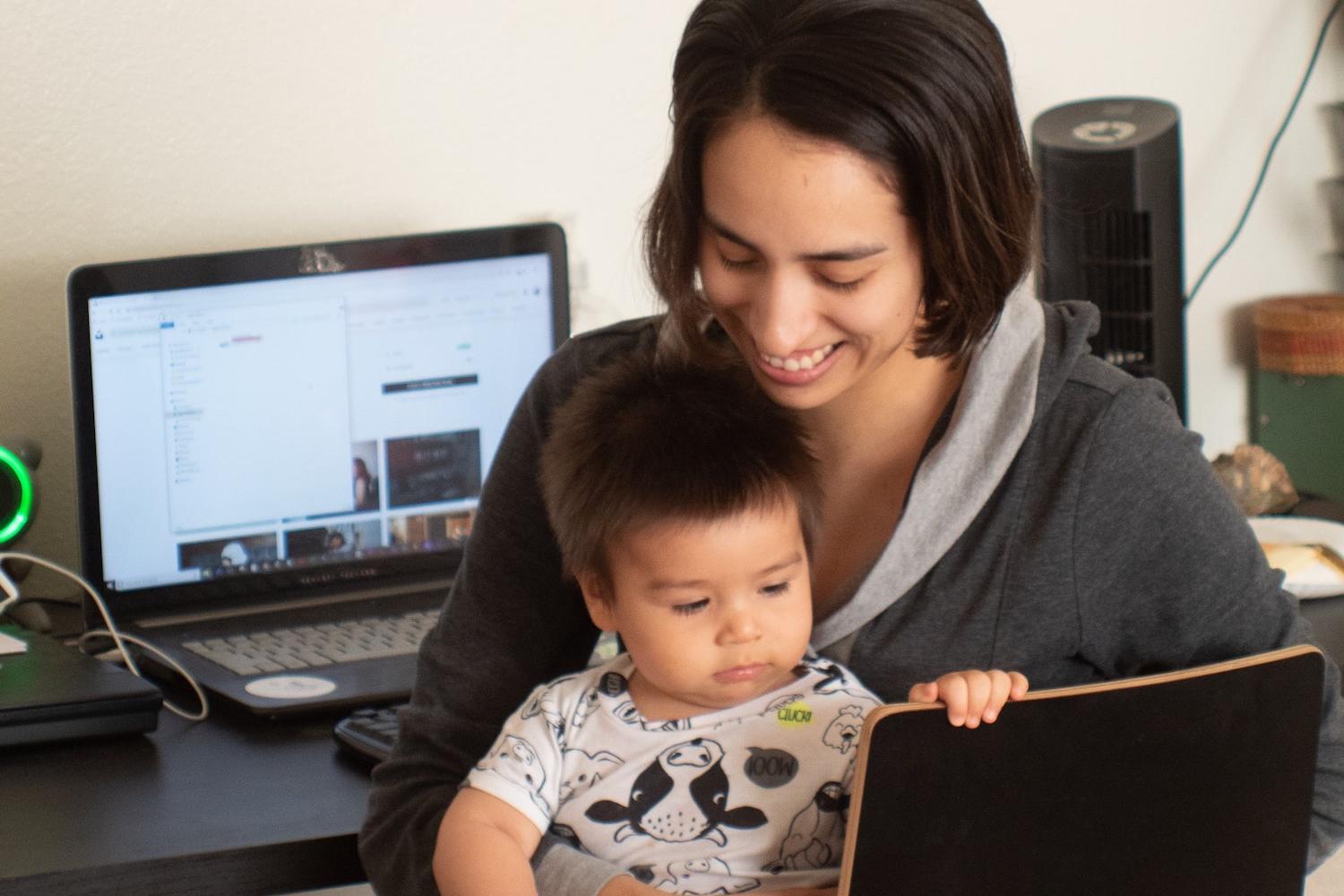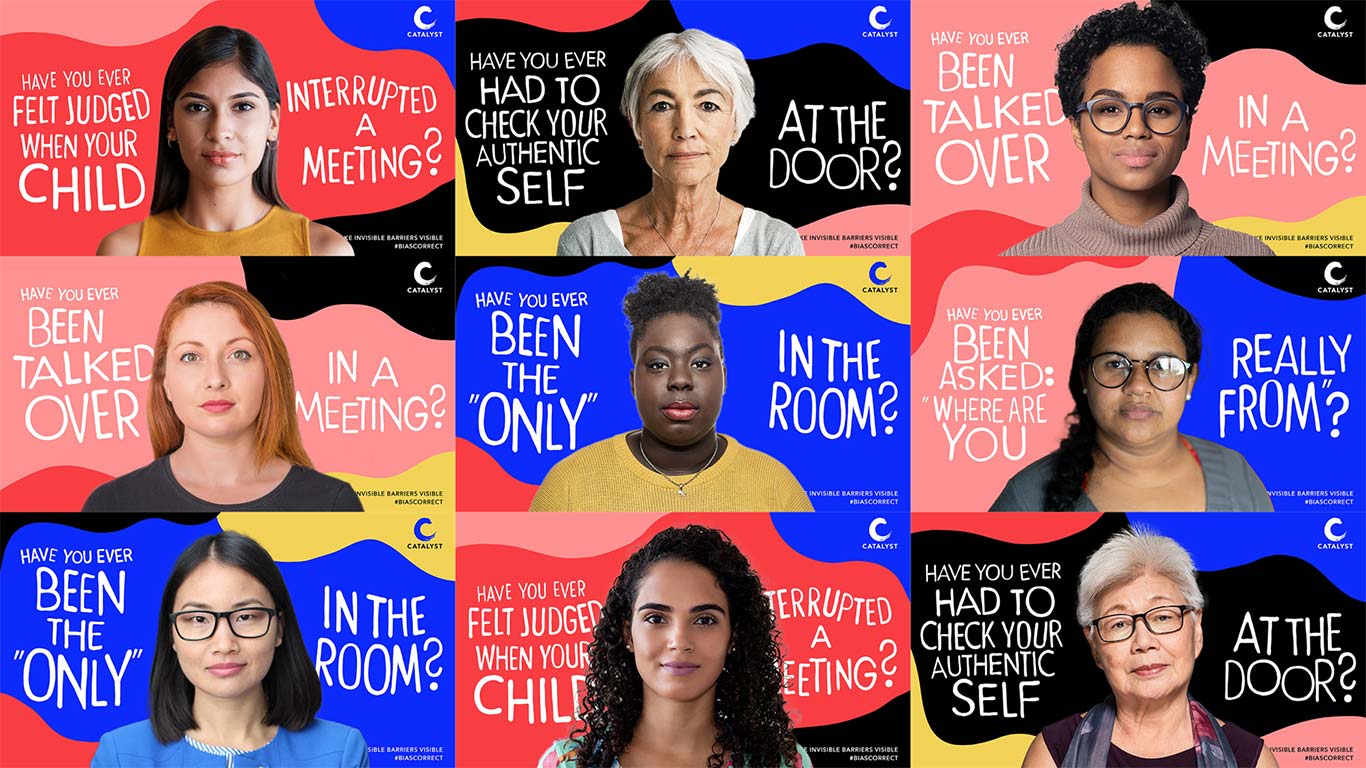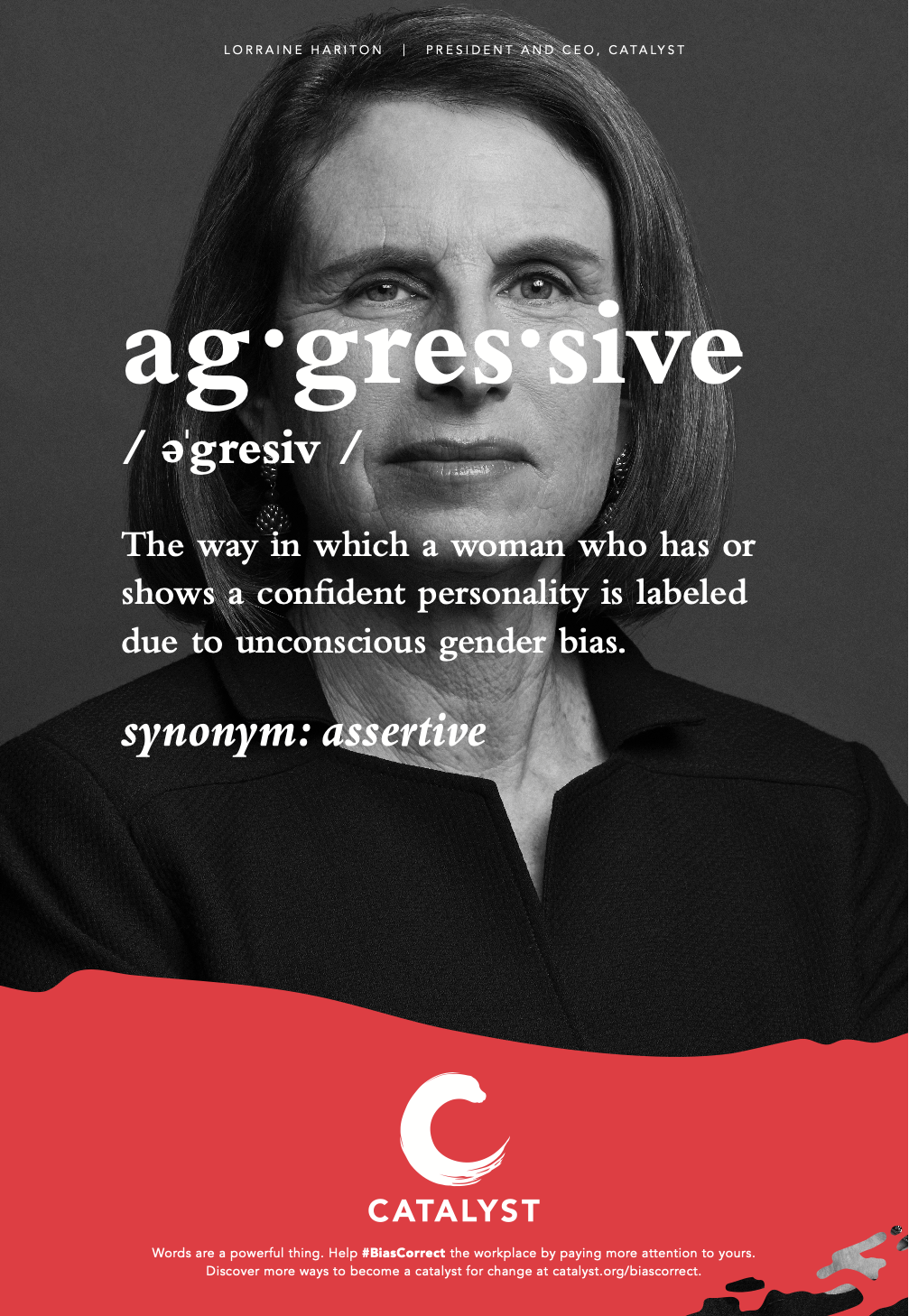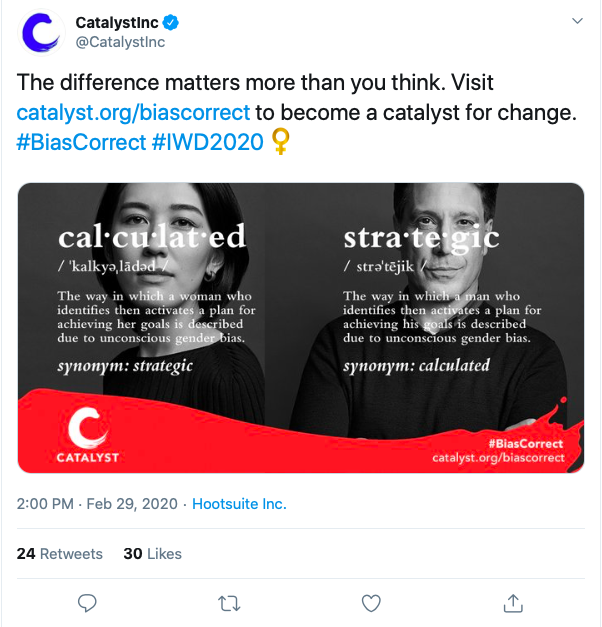
Before the coronavirus struck, roughly 4 in 10 working U.S. women reported facing gender bias or discrimination while on the job — and early research indicates the pandemic may be making matters even worse.
Research conducted by Catalyst, a nonprofit that works with CEOs to build gender equality, shows that unconscious bias continues to hold women — particularly women of color — back in remote and virtual workplaces: In a June survey, 1 in 5 U.S. women said they recently felt ignored and overlooked by coworkers during a video call, and over 40 percent of business leaders feel it's difficult for women to speak up in virtual meetings. Further, 1 in 5 working people said they've seen more discrimination at work since the pandemic began.
In its newly launched Make the Invisible Visible campaign, Catalyst is calling on colleagues around the world to tackle gender bias in virtual workplaces head on. Created with the women-led brand strategy firm Burns Group, the campaign includes a toolkit with five virtual meeting backgrounds designed to spark conversations about unconscious gender bias.

Each illustrated background, available in English, French, German and Spanish, includes a question about a common experience women report having in their virtual workplaces:
- Have you ever been talked over in a meeting?
- Have you ever been the "only" in the room?
- Have you ever been asked, "Where are you really from?"
- Have you ever felt judged when your child interrupted a meeting?
- Have you ever had to check your authentic self at the door?
Virtual workers are encouraged to share screenshots of their virtual meetings featuring one of the backgrounds using the hashtag #BiasCorrect, or tell a story about a barrier they’ve experienced in the workplace using the Catalyst Video Filter.
"Make the Invisible Visible really showcases the experiences of bias women have in remote work during the Covid-19 crisis," Lorraine Hariton, Catalyst president and CEO, said in a statement. "Unconscious bias is persistent, so we want to engage companies and their employees — including men as gender partners — to #BiasCorrect and create more inclusive workplace cultures."

Naming, unpacking and dismantling gender bias in the workplace
The campaign is the latest iteration of Catalyst's #BiasCorrect series, which has run annually around International Women's Day since 2019.
In its first year, #BiasCorrect took the form of a social media campaign featuring images of influential women emblazoned with biased terms once used to describe them at work. (Hariton of Catalyst, for example, was once described as "aggressive," while former Secretary of State Hillary Clinton was labeled "bossy.") Catalyst and Burns Group invited women on social media to share their own experiences with gender-biased language using a photo generator that placed their experiences alongside famous women.

The 2019 campaign reached more than 188 million people across six continents, according to Catalyst estimates. It also included a plugin for the instant-messaging platform Slack, which spots bias in word choices and suggests alternative terms. Nearly 300 organizations downloaded the plugin in its first year, and it was open-sourced as part of the 2020 iteration of #BiasCorrect so it could be adapted for other messaging platforms.
Also in 2020, #BiasCorrect expanded its call-to-action to include men, who shared how they were described in the office using the same photo generator, making for some interesting side-by-side comparisons.

"We know the problem isn't fixed, and we're engaging men as gender partners ... to interrupt bias and help women advance," Hariton said last year.
Workers see opportunity for change
Catalyst's surveys document the prevalence of micro-aggressions and gender-biased language in corporate workplaces before and during the pandemic — particularly for women of color, who say they feel constantly "on guard" at work and hyper-aware of how they are perceived by their colleagues.
But the group's most recent polling indicates that workers are optimistic about the future. Around 75 percent of business leaders believe COVID-19 is an opportunity to directly address gender and racial disparities — and 7 in 10 employees believe workplaces will become more gender-inclusive in the wake of the pandemic.
If you'd like to be a part of the solution, Catalyst's #IWD2021 and #BiasCorrect pages include loads of resources to guide you along the way. And be sure to check out the group's Leading for Equity and Inclusion Workshops, a blended-learning curriculum designed to "empower leaders with the skills they need to build more inclusive workplaces."
Image credits: Brian Wangenheim/Unsplash and Catalyst

Mary has reported on sustainability and social impact for over a decade and now serves as executive editor of TriplePundit. She is also the general manager of TriplePundit's Brand Studio, which has worked with dozens of organizations on sustainability storytelling, and VP of content for TriplePundit's parent company 3BL.














